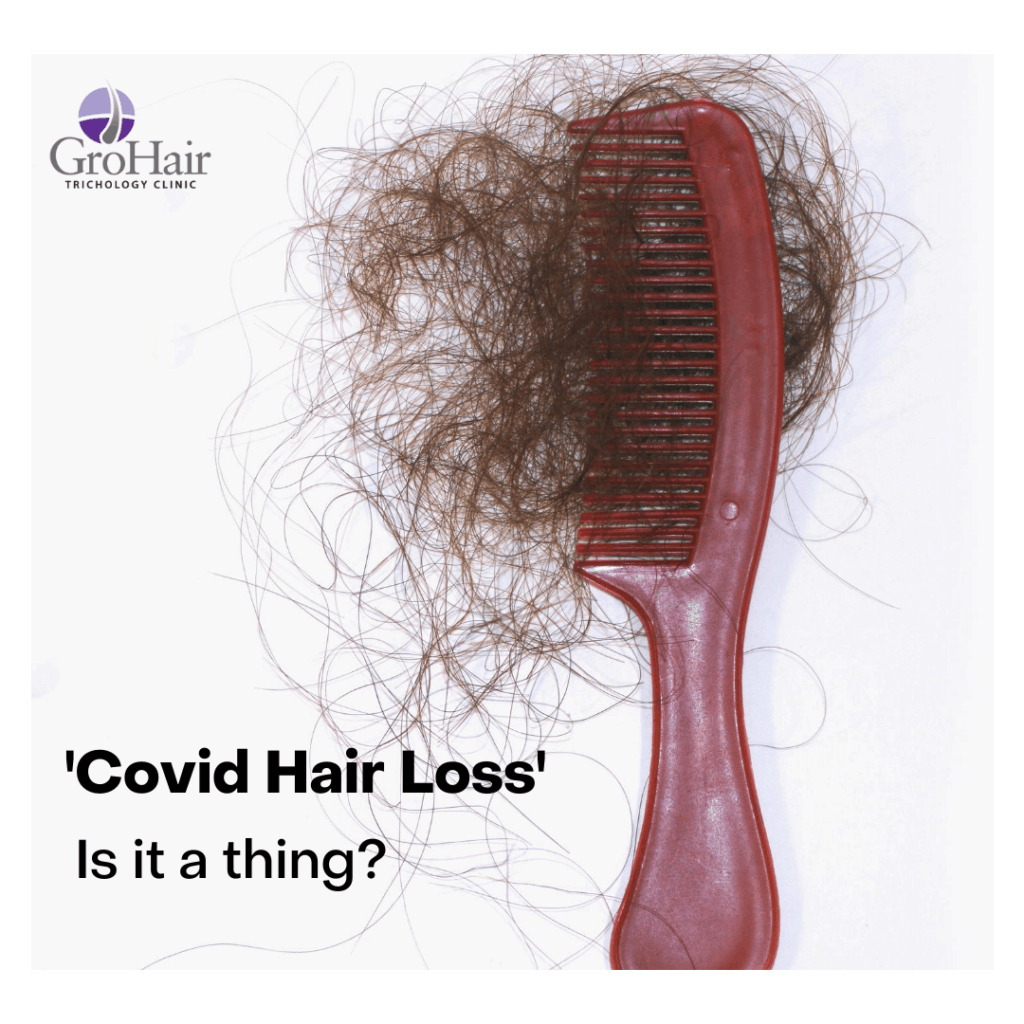
Covid Hair Loss…….is it a thing?
It has been a phenomenon highlighted in the media quite frequently over recent weeks, who have been very quick to brand it ‘Covid Hair Loss’. I have certainly seen an increase in patients with increased shedding since I reopened my clinic again in July, so what is really going on here, and……
Is Covid-19 to blame?
If you have contracted the virus, it is possible yes…… but then again maybe not!
The type of hair loss people appear to be experiencing is a condition medically known as Telogen Effluvium. Typically there is an event or a health issue which causes the hair cycle (of a proportion of scalp hairs) to shorten, the growing phase is halted prematurely and then these hairs enter a resting phase where they exit the scalp roughly 2-4 months later (timing is important here when it comes to cause and effect!)
There are hundreds of different possible causes and contributors which can lead to telogen effluvium. A good hair loss specialist would go through a process of elimination and investigation to rule out all the various possibilities, and never just assume.
Timing is important!
The cause or associated event will (in most cases) precede the hair loss by around 2-4 months, so if you contracted the virus in March and you started experiencing hair loss in June, you may be onto something!
How can Covid-19 lead to hair loss?
One of the primary symptoms associated with Covid-19 is a prolonged high fever. Febrile illnesses are a known cause of telogen effluvium, so this is a strong possible link, but not everyone with a fever will experience hair loss.
I look to recent cases in my clinic and there is somewhat of a pattern emerging!
- All patients contracted Covid-19 and suffered increased shedding 2-4 months later.
- All patients were female.
- Iron deficiency or low ferritin (iron stores) was a factor in each case.
- Insufficient B12 levels were a factor in each case.
- All patients experienced loss of appetite and food intake was extremely low for around 10 days.
Iron and B12 deficiency are also known causes of telogen effluvium, so this poses more questions. Low iron levels are common in menstruating women, were they short on iron before the virus arrived? A reduced food intake can affect baseline nutrient levels, but B12 can be stored in the body for some time meaning levels tend to reduce at a slower rate…. Was there an issue with their dietary intake previously?
What about stress? (now this is a subject for another blog, as the word ‘stress’ gets thrown around a little to easily in relation to hair loss) There are people who have suffered extreme levels of stress during the pandemic, and I’m talking about loss of a job, financial worries, divorce, bereavement etc. These situations can all induce an acute episode of Telogen Effluvium, so it is clear we must look at the bigger picture.
Is ‘Covid Hair Loss’ a thing? possibly? ….. but then again maybe not?
We still have a lot to learn about the Covid-19 virus, and it is proving to be more complex than previously thought!
If you have been experiencing sudden increased shedding, it’s important to remember that this is a form of temporary hair loss, which can be resolved in time and with the right advice.
If you have concerns please seek the help of a qualified hair loss specialist, sooner rather than later.
